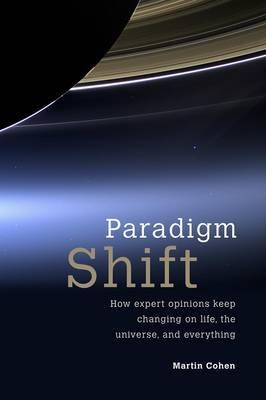Overview
Why do giraffes have long necks? It can't really be for reaching tasty leaves since their main food is ground level bushes, tidy though that explanation would be. And how does relativity theory cope with the fact that the observable universe defies prediction by being far too small and anything but homogeneous? By inventing a vastly larger, but invisible, universe. And what exactly should we make of the scientists who claim to be witnessing thought itself, when the changes of blood flow in the brain that they observe are a thousand times slower than the neuronal activity it is supposed to reveal? A little scepticism is in order. Yet if philosophers of science, from Thomas Kuhn to Paul Feyerabend, have argued that science is a more haphazard process, driven by political fashion and short-term economic self-interest, today almost everyone seems to assume it is a vast jigsaw of interlocking facts pieced slowly but steadily together by expert practitioners. In this witty but profound 21st-century update on the issues, Martin Cohen offers vital clues for understanding not only the way knowledge develops, but also into the dangers of accepting too readily or too uncritically the claims of experts of all kinds - even philosophical ones! The claims are invariably presented as objective fact, yet are rooted in human subjectivity.
Full Product Details
Author: Martin Cohen
Publisher: Imprint Academic
Imprint: Imprint Academic
Dimensions:
Width: 15.60cm
, Height: 1.50cm
, Length: 23.40cm
Weight: 0.400kg
ISBN: 9781845407940
ISBN 10: 1845407946
Pages: 200
Publication Date: 01 September 2015
Audience:
College/higher education
,
Undergraduate
,
Postgraduate, Research & Scholarly
Format: Paperback
Publisher's Status: Active
Availability: In Print

This item will be ordered in for you from one of our suppliers. Upon receipt, we will promptly dispatch it out to you. For in store availability, please contact us.
Reviews
Cohen provides an exciting and sweeping view of both social and scientific theory. Reading his account, presented almost as adventures, one can't help but realize that the concept of paradigm shift needs to be radically changed too. Cohen's book is so engrossing because it challenges us to take an active part in questioning, or enforcing, current paradigms. -- Perig Gouanvic, Editor, philosophical-investigations.org Plausible misinformation is passed down to each generation in our efforts to explain everything. The greatest error is to confuse fact with theory or science with omniscience. Irish Times Cohen says that Science Men are always right. Even when they are in the middle of changing their opinions, they are always right. They are like foxes, which always make sure that they have multiple ways in and out of their underground sets. -- Bjarne Norum Kristeligt Dagblad (Copenhagen) A good mental workout. -- Michael Comyn RTE Radio 1 In his new book, philosopher Martin Cohen warns of the risks we run in accepting too readily the claims of experts of all kinds. -- Geoff Ward The News Hub
Cohen provides an exciting and sweeping view of both social and scientific theory. Reading his account, presented almost as adventures, one can't help but realize that the concept of paradigm shift needs to be radically changed too. Cohen's book is so engrossing because it challenges us to take an active part in questioning, or enforcing, current paradigms. -- Perig Gouanvic, Editor, philosophical-investigations.org Plausible misinformation is passed down to each generation in our efforts to explain everything. The greatest error is to confuse fact with theory or science with omniscience. Irish Times
Author Information
Martin Cohen is a British philosopher who specialises in philosophy of science and political philosophy. He studied philosophy and social science at Sussex University under some of the early group of philosophers who launched the University's pioneering language and values programme. After teaching and research posts in Britain and Australia, he moved to France to concentrate on his writing, which typically blends 'psychological and social studies with philosophical theory... eschewing technical jargon and using easily understood scenarios to demonstrate the theme', as one reviewer put it. His most popular book, 101 Philosophy Problems has been published in a dozen languages, sold nearly a quarter of a million copies, and is now in its fourth English edition. A book on thought experiments, Wittgenstein's Beetle and Other Classic Thought Experiments was selected by The Guardian as one of its 'books of the week', while Mind Games was selected by France Culture as one of new philosophy books for dissection in the program essai du jour.




